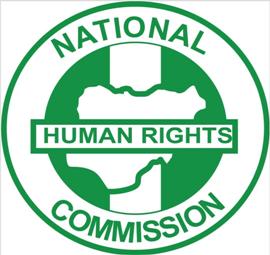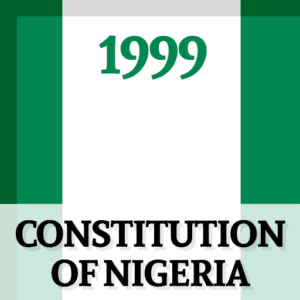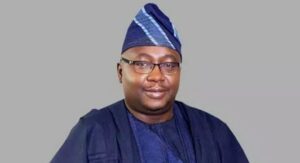
22 years of infantile democracy: Onus lies on custodians of political architecture to drive conforming ideologies
Although the celebration of this year’s Democracy Day brings the Country’s record of unaltered administration of democratic government to 22 years, it is insightful that many are largely dissatisfied than a few who would say otherwise. The grounds for such dissatisfaction would not be far fetched from the disappointment of the expectations many believed would be the case on the installation of a democratic government. The falling short of the expectations by many who experienced the days of military rule have begun to raise a perspective of juxtaposition of the military days and the civilian democratic rule of 22 years. What is believed to be wide disparities in the condition of living between the former and the latter is beginning to raise nostalgia for the days of the military. The arguments by those nurturing this return of the military have been premised on the fact that if the conditions under the civilian democratic government have brought untoward hardship against what used to be the case under the days of military administration, then the restoration of military rule becomes justifiable regardless of their draconian tendencies.
It is saddening that a call for the return of the military to power is gradually beoming popular despite the limitations of human rights that characterised the days of their autocratic dictatorship. The thirst for such rule despite the experience of limitations, evidently give reflection to the degree of untoward conditions of living which would push many to the position of options of sacrificing their fundamental human rights just to ease the burden of hardship. It is apparent that the prevailing deepening of inhumane conditions of living has been pushing many to unbearable end.
The resultant effects of these conditions have been the ground on which many have resorted to criminal adventures and sharp practices. The yearnings to get out of the clutches of economic hardship have led many to venture into variants of illegal activities driven by the urgency to do anything to get out of penury. The sediments of these tendencies have been the source of various delinquencies which continue to collide in recent time to heighten insecurity situations across the Country.
It is indisputable that all indices to assessing conditions of living in the Country are apparently on the negative sides. The records of the worsening profile of the economy which has been a major instigating force of societal turbulence remain a topical subject. The myriads of cause and effect offsprings holding bearings to the devastating state of the economy have brought the entire Country to a state of shambles. The impacts of the shortfalls appear to be more debilitating than could be directly coted.
The rising debts profile of the Country in recent time without concrete results to show for the loans has been a source of worry to observers. Arguments have been raised on the limitations that servicing the debts would pose to growth and development. The basis has been anchored on the strains that stand ahead the Country in the face of servicing debts which results in terms of capital projects are not concrete enough for returns. Recent statistics from the National Bureau of Statistics (NBS) had revealed that the domestic debt of Nigeria rose to N20.64trn as of March 31, 2021 from N20.21trn on December 31, 2020, with the cost of servicing the Country’s debt from January to March this year standing at N993.5bn. The breakdown of the report showed that a total of N612,712,626,144.40 was spent on domestic debt service while $1,003,409,940 (N380.79bn) was spent on external debt service payments. It would be recalled that the PricewaterhouseCoopers (PwC) Nigeria, had said in a recent report noted that the increasing cost of servicing debt has continued to weigh on the Federal Government’s revenue profile.
The report had read: “Actual debt servicing cost in 2020 stood at N3.27trn and represented about 10 per cent over the budgeted amount of N2.95trn. This puts the debt-to-revenue ratio at approximately 83 per cent, nearly double the 46 per cent that was budgeted. This implies that about N83 out of every N100 the Federal Government earned was used to settle interest payments for outstanding domestic and foreign debts within the reference period. In 2021, the FG plans to spend N3.32trn to service its outstanding debt. This is slightly higher than the N2.95trn budgeted in 2020.”
However, while the toddling state of the economy remains a source of worry and the causative instigator of several socio-economic calamities, it is essential to note that there are several other defective patterns in the character of societal institutions in the Country. The question of the state of democracy itself as a culture is a subject of critical concern in the Country. The toddling state of the Country’s political architecture in the administration of a democratic government remains troubling. The inability to address such matters of top political concern as restructuring the Federation, cutting the cost of governance, state police among others, are subjects of controversies. The lack of will to overhaul the working patterns of the structure of various government institutions to respond pragmatically to new realities has left deformities which have continued to raise resistance against modern development. The controversies which have been pulled round such pressing subjects still reveal the depth of toddling culture in the practice of democracy in the Country.
It is high time custodians of the political architecture of the Country began to advance the course of deliberate political socialisation in the Country. The infantile state of democratic culture within the political space in the Country is much distasteful. The mannerisms with which custodians of the power architecture attend to critical State matters of broad concern speak in the negative light to nurturing the ideologies of good government among the people in the light of democratic principles. The practical syndrome of the custodians of the political architecture have more or less created a counterproductive atmosphere hostile and unconducive for democratic culture to thrive. The resultant effects have been unbecoming which form the reflective deficiencies of political retardation, institutional decay and more troubling – the ebbing of the economy, among other socio-cultural deformities currently ravaging the Country.
The crawling state of Democracy in the Country is undesirable. The perceivable disposition of antiquated postures poses threats of infanticide against the survival of the system in the Country. The nauseating effects of such debilitation have only successfully created strains of restricting strings which have entangled the Country in the web of turbulence. It is only rational and instructive for the custodians of political powers to redefine their ideological disposition to democracy as a standing political culture, while leading the course to drive the perceptions among the populace. The need on the part of custodians of political architecture to show the evidence of the developmental realities that accompany the system of democratic administration is paramount.



